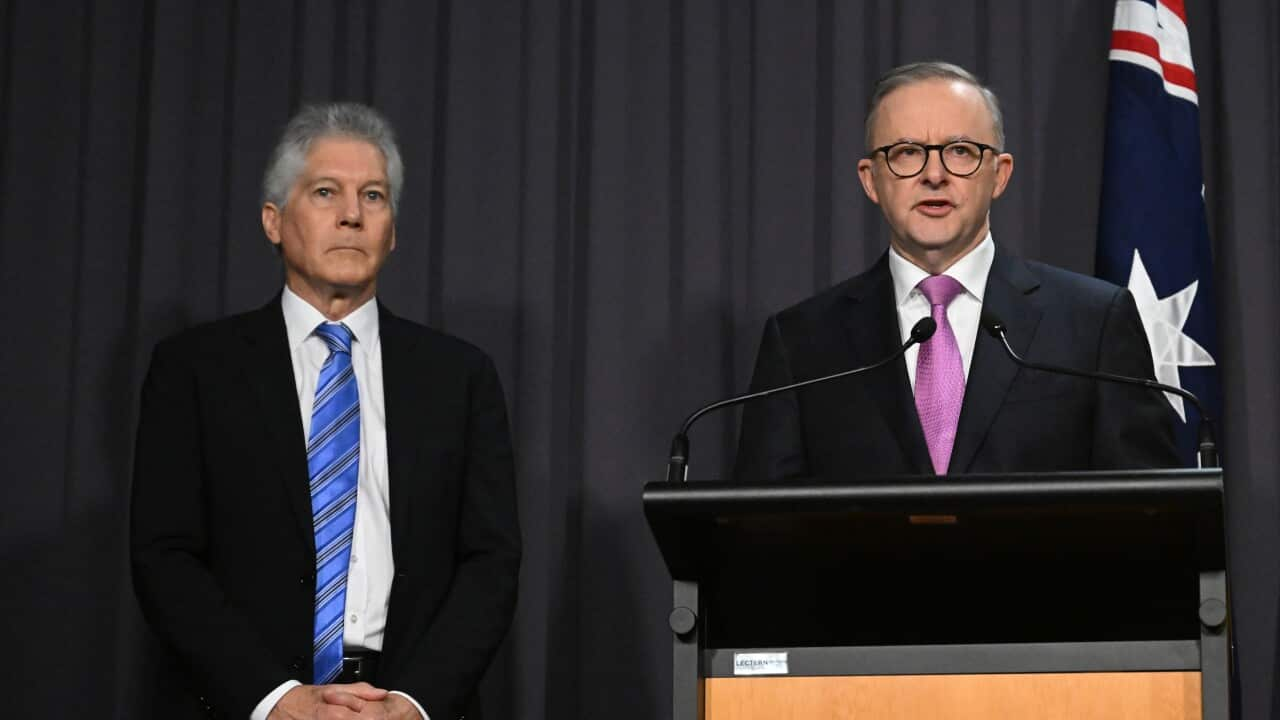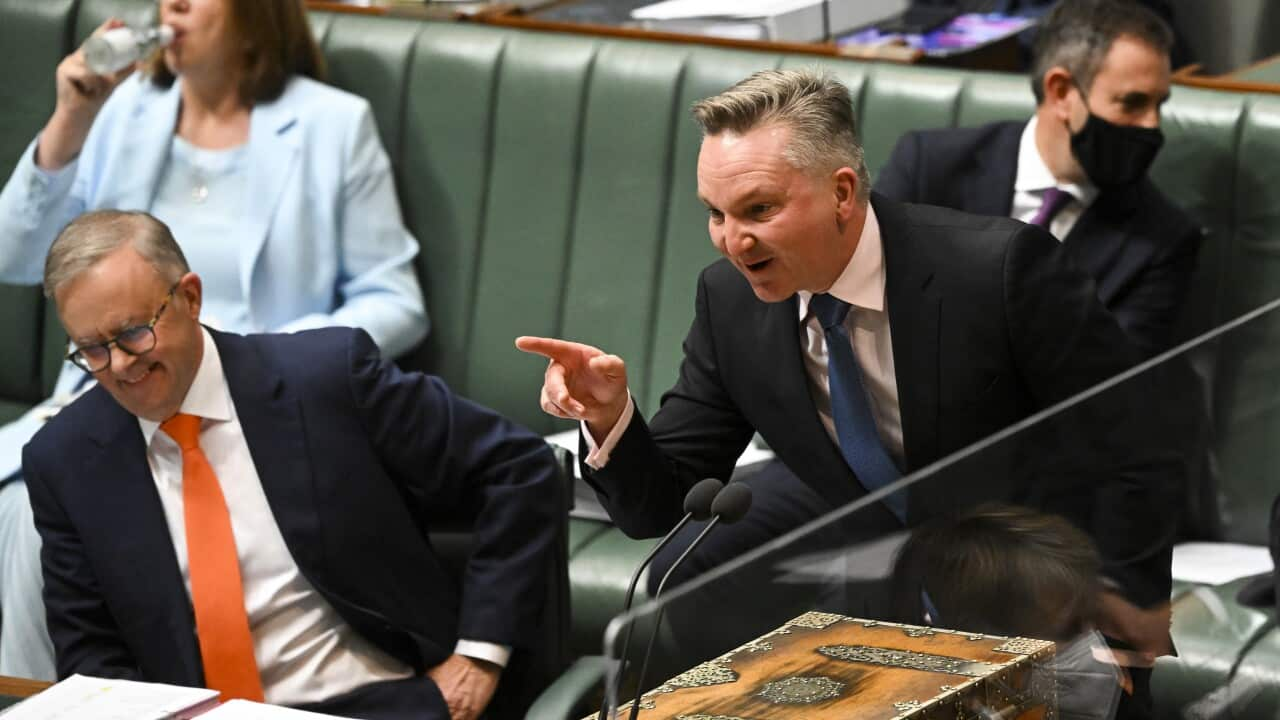Key Points
- Prime Minister Anthony Albanese said the major strategic review would prepare the military over the next decade
- Retired Air Chief Marshal Sir Angus Houston described the current strategic environment as the "worst I've ever seen" in his career.
Prime Minister Anthony Albanese has described a major strategic review into Australia's defence force as essential to defending the nation and avoiding conflict.
Mr Albanese announced the review on Wednesday, which he said would prepare the military over the next decade in the face of a deteriorating security environment.
"This review will prepare Australia to effectively respond to the changing regional and global strategic environment and ensure defence's capability and force structure is fit for purpose, affordable and delivers the greatest return on investment," he said.
The review, the first since 2012, will be led by retired Air Chief Marshal Sir Angus Houston, a former Chief of the Australian Defence Force (ADF), and former Labor defence minister Stephen Smith.

(left to right) Former defence minister Stephen Smith, Prime Minister Anthony Albanese, Deputy Prime Minister Richard Marles and former Chief of the Australian Defence Force, Angus Houston. Source: AAP / LUKAS COCH
The prime minister said it was "incumbent" on the review to deliver a "frank assessment" of the capability and pipeline of billions of dollars of investment into defence projects.
"Many of which are overbudget and delayed," he said.
He said the review would ensure "Australia has the necessary capability to defend ourselves" against the current challenging strategic environment.
The review's recommendations on the ADF's structure, force posture and preparedness from 2023 to 2033 and beyond are expected to be presented to the government by March 2023 at the latest.
Labor has committed to maintaining defence spending at a level of at least 2 per cent of GDP, with Mr Albanese indicating he expects this to "rise in the future".
The Liberal's defence spokesperson Andrew Hastie said the government needed to guarantee that the strategic review would not lead to cuts in defence spending or programs.
"Our [Australian Defence Force] need capability now, not more reviews and cuts," he said in a statement.
"Labor must guarantee that they will not use this Review as a smokescreen for cuts and delay.”
Mr Marles said the review will also consider how Australia's capabilities can work in cooperation with the United States, the United Kingdom and other key partners.
"This will be the most significant review that we have seen of our defence force in decades," he said.
Mr Marles said the government remained committed to the AUKUS deal to acquire nuclear-powered submarine technology from the US and United Kingdom.
"We need this capability as soon as we can get it," he said.
"The AUKUS work will look at how we can get that as soon as we can. It will look at what — if there's a capability gap arises, how do we plug it."
He said an update on this process was expected in the first part of next year alongside the completion of the review.
According to the review's terms of reference, the world is undergoing significant strategic realignment.
"Military modernisation, technological disruption and the risk of state-on-state conflict are complicating Australia's strategic circumstances," it says.
"These strategic changes demand the Australian government re-assess the capabilities and posture of the ADF and broader Department of Defence."
The review will be informed by intelligence and strategic assessments of the most concerning threats to Australia's security.
Mr Albanese said Mr Smith, a Western Australian who was defence minister from 2010 to 2013, and Sir Angus would bring a depth of experience to the task.
Sir Angus described "fast-changing" strategic environment as the "worst I've ever seen" in his career.
"Clearly our circumstances have changed dramatically over the recent past," he said.
"A land war in Europe, all sorts of issues in north-east Asia, particularly around Taiwan, east China Sea, issues in South-East Asia."
Sir Angus joined the Air Force in 1970 before rising through the ranks to become Chief of Air Force in 2001.
In 2005, he was appointed Chief of the Defence Force, before retiring in 2011.
PM says Australia's position on Taiwan is 'clear'
The announcement of the review comes as US House of Representatives Speaker Nancy Pelosi arrived in Taiwan, with China's government saying her visit seriously damages peace and stability in the region.
Mr Albanese said the context in which the review is being taken and China's "more aggressive posture in the region" was "well known".
"But our position on Taiwan is clear — we don't want to see any unilateral change to the status quo," he said.
"We'll continue to work with partners to promote peace and stability across the Taiwan Strait."
When asked about the prospect of military engagement with China, Mr Albanese said the government's focus was on doing all it can to avoid conflict.
"I firmly believe that one of the objectives front and centre of having a strong defence of Australia is to make sure that we avoid conflict," he said.
"I believe that's the objective of — which the Australian people want to see."
Greens Leader Adam Bandt said Australia needed to focus on deescalation by ensuring it had an independent defence policy, including from the United States.
"We need to be more self-reliant," he told the National Press Club.
"The longer that we contract out our defence and foreign policies to other countries the less safe our country becomes."













